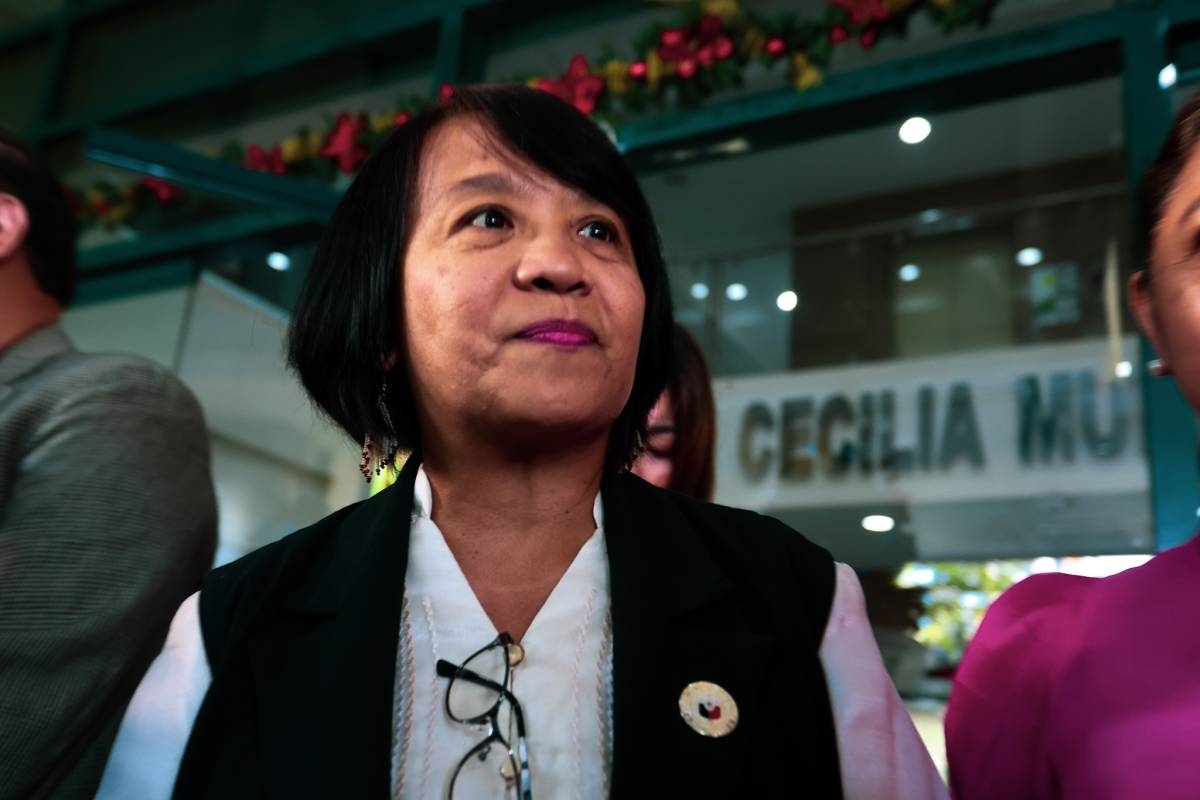House Deputy Minority Leader and ACT Teachers’ Representative, France Castro, expressed her dismay at the decision of the Quezon City Prosecutor’s Office to dismiss her grave threat complaint against former president Rodrigo Duterte. The dismissal, as stated in a 14-page resolution by Quezon City Senior Assistant Prosecutor Ulric Badiola, was based on the argument that the words and phrases used by Duterte did not convincingly establish his intention to be taken seriously.
Castro, in a statement, expressed her disappointment, emphasizing that the prosecutor failed to recognize the fear that Duterte’s threat had brought upon her and her family. She stated, “It felt like justice was denied to me.”
The complaint was filed by Castro after Duterte made threatening comments during an interview on SMNI News in October. In the interview, the former president suggested that Castro’s daughter, Vice President Sara Duterte, should openly declare her intention to use the intelligence fund against the “communists in Congress.”
Castro’s lawyers are currently reviewing the court’s decision and considering their next move. Meanwhile, Gabriela Party-list Representative Arlene Brosas criticized the dismissal, calling it a “huge injustice.” Brosas argued that the prosecutor chose to turn a blind eye to Duterte’s threats, which were later circulated on social media.
Expressing concern, Brosas added, “We are deeply concerned that this decision may establish a precedent for rabid red taggers, suggesting that it is acceptable to intimidate and threaten the lives of human rights advocates.”
Kabataan Partylist Representative Raoul Danniel Manuel also condemned the dismissal, stating that it was clear Duterte had threatened Castro and that his comments were “orders to his minions.” Manuel expressed his belief that even though Duterte is no longer in power, he still possesses the resources and machinery to act upon his threats. He cited the controversial war on drugs as evidence of this.
The dismissal of the grave threat complaint against Duterte has sparked outrage among lawmakers and activists who see it as a blow to the fight against threats and intimidation. The decision raises questions about the protection of human rights advocates and the accountability of public officials.
It is important to note that threats and intimidation can have a chilling effect on individuals who are working to promote human rights and advocate for social justice. The dismissal of such complaints may discourage victims from coming forward and seeking justice, perpetuating a culture of fear and impunity.
As the case unfolds, it will be crucial to closely monitor the legal proceedings and the response from the international community. The outcome of this case could have far-reaching implications, not only for the individuals involved but also for the broader fight against threats and intimidation.
In conclusion, the dismissal of the grave threat complaint against former President Rodrigo Duterte has ignited a wave of disappointment and concern among lawmakers and activists. The decision raises important questions about the protection of human rights advocates and the accountability of public officials. As this case continues to unfold, it is crucial to ensure that justice is served and that individuals who face threats and intimidation are able to seek redress.







